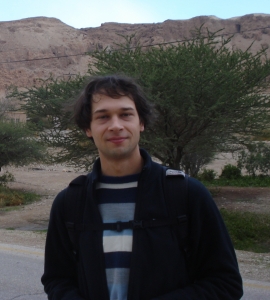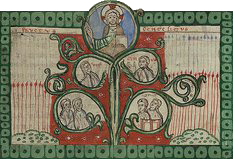Inter-cultural Transmission of Intellectual Traditions in the Middle Ages and the Early Modern Period. A comparative perspective
Participants
Adam Izdebski

In other words, the aim of my contribution is to study the educational context of the transmission of intellectual traditions: how the process of introducing members of a “recipient” culture to foreign texts and ideas made use of the educational models created within the other culture. In order to answer these questions, I am going to study the corpus of the 6th c. texts associated with the School of Nisibis and the key Greek sources on the practice of communal intellectual formation as well as the writings of those Christian theologians who were interested in this model.
Adam Izdebski is a historian of Byzantium and Late Antiquity. Having received his MAs in History and Psychology from the University of Warsaw, he spent a year in Oxford reading for an MSt in Late Antique and Byzantine Studies. The subject of his doctoral dissertation was the rural world of Asia Minor in the transitional period between Late Antiquity and the early Middle Ages. In his research, he combines various types of evidence: textual, archaeological and palynological. Apart from focusing on socio-economic and environmental history, he is also interested in educational studies, in particular in the way intellectual endeavours were ideally conceived and practically organised in the past and how these models are now being reworked in the modern university.
After defending his doctorate in 2011 at the University of Warsaw, he has received the Humboldt Foundation Postdoctoral Fellowship at the Byzantine Seminar of the Freie Universität in Berlin for the academic year 2011/2012. He is now a National Science Centre Postdoctoral Fellow at the Institute of History of the Jagiellonian University. His current research work aims at drafting a single account of the environmental history of Byzantium. He is a member of the management board of the National Childern’s Fund (Krajowy Fundusz na rzecz Dzieci).



